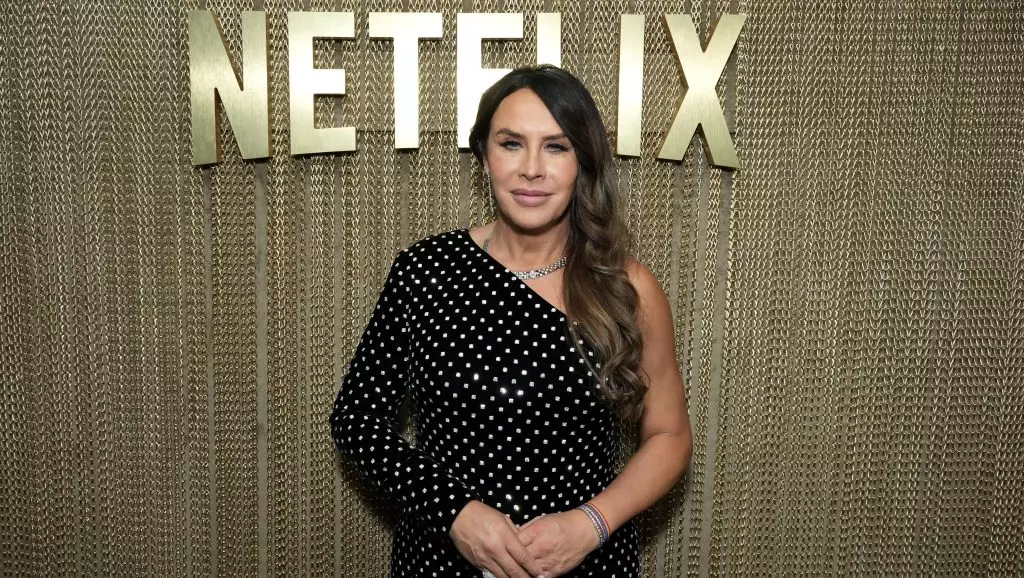Karla Sofía Gascón is perhaps one of the most fascinating figures to emerge in contemporary cinema, especially with her breakthrough role in “Emilia Pérez.” As the first openly transgender actress poised to earn an Oscar nomination, her journey had all the makings of a fairy tale. However, the narrative took a sharp left turn when her past social media diatribes surfaced, calling into question her candidacy for an award that represents not just excellence in film but also an endorsement of societal values. The dichotomy between her potential legend and the problematic remnants of her past illustrates a complex interplay of talent, controversy, and societal standards that often, tragically, dictates an artist’s worth.
The Echoes of Social Media Footprints
In today’s digital age, our words and expressions are permanently etched into the ever-evolving landscape of social media. Gascón’s outbursts, many of which were articulated years ago, include comments dismissive of significant social issues, such as her characterization of Islam and controversial remarks pertaining to historical events. These statements, which many would argue lack sensitivity especially in the current socio-political climate, surfaced at a critical moment—her Oscar aspirations were suddenly overshadowed by public outrage, threatening to tarnish her burgeoning image.
Despite the gravity of these posts, Gascón’s reaction has been emblematic of a defiant spirit. In her public appearances, she oscillates between expressing regret and vehemently defending her right to speak her mind. In an industry that often preaches compassion and understanding, her stance raises questions about accountability. Should the talents and artistry of an individual overshadow the problematic ideologies they may have once espoused? Moreover, does society owe a level of grace to someone who appears to acknowledge their wrongs yet refuses to bow to the weight of public scrutiny?
The Weight of Public Perception
During a recent promotional event for her biographical book “Lo que queda de mi,” Gascón passionately asserted that she felt victimized by an orchestrated campaign against her. “It’s clear that there was a campaign against me and that they kept going until they got what they were after,” she remarked, suggesting that her downfall was more than just a product of her troubled past—it was a concerted effort to derail her career. This perspective introduces a new layer to her narrative, allowing observers to engage in a broader discussion on cancel culture and its implications in an era when every misstep can be amplified and weaponized.
Her assertion that “no one has to forgive me for anything” signals a refusal to submit to societal pressure to conform. Many in the public eye may choose the route of contrition to salvage their careers; Gascón has opted instead for defiance, demanding that her critics confront her directly about their grievances. This bravado, while admirable to some, also creates a dichotomy that complicates her public persona. Can an artist be fully embraced by society when their past actions contradict the values they purport to uphold?
The Complicated Role of Industry Giants
The relationship between Gascón and Netflix illustrates another multifaceted aspect of this saga. Initially distancing itself from Gascón amid the backlash, Netflix later invited her to their Oscars celebration, demonstrating a willingness to reconcile. Chief content officer Bela Bajaria described the situation as a “bummer” while also hinting at the potential for future collaboration. This showcases the entertainment industry’s complicated navigation of personal misconduct and public relations: an artist and a platform intertwined, each needing the other to thrive.
Ultimately, Netflix co-CEO Ted Sarandos highlighted a crucial tenet of human relationships in the creative world. “You have to have some grace when people make mistakes. And we have grace,” he stated. Yet, grace seems to come at a cost; public sentiment often dictates when and how grace can be extended, complicating the issue of redemption in the public eye.
Karla Sofía Gascón’s story is thus a microcosm of a larger conversation at the intersection of art, identity, and societal expectations. As society grapples with issues of accountability, free speech, and artistic expression, the unfolding of Gascón’s career poses a challenging question for all involved: How do we balance the complexities of a person’s history with the promise of their talent and potential for growth?
